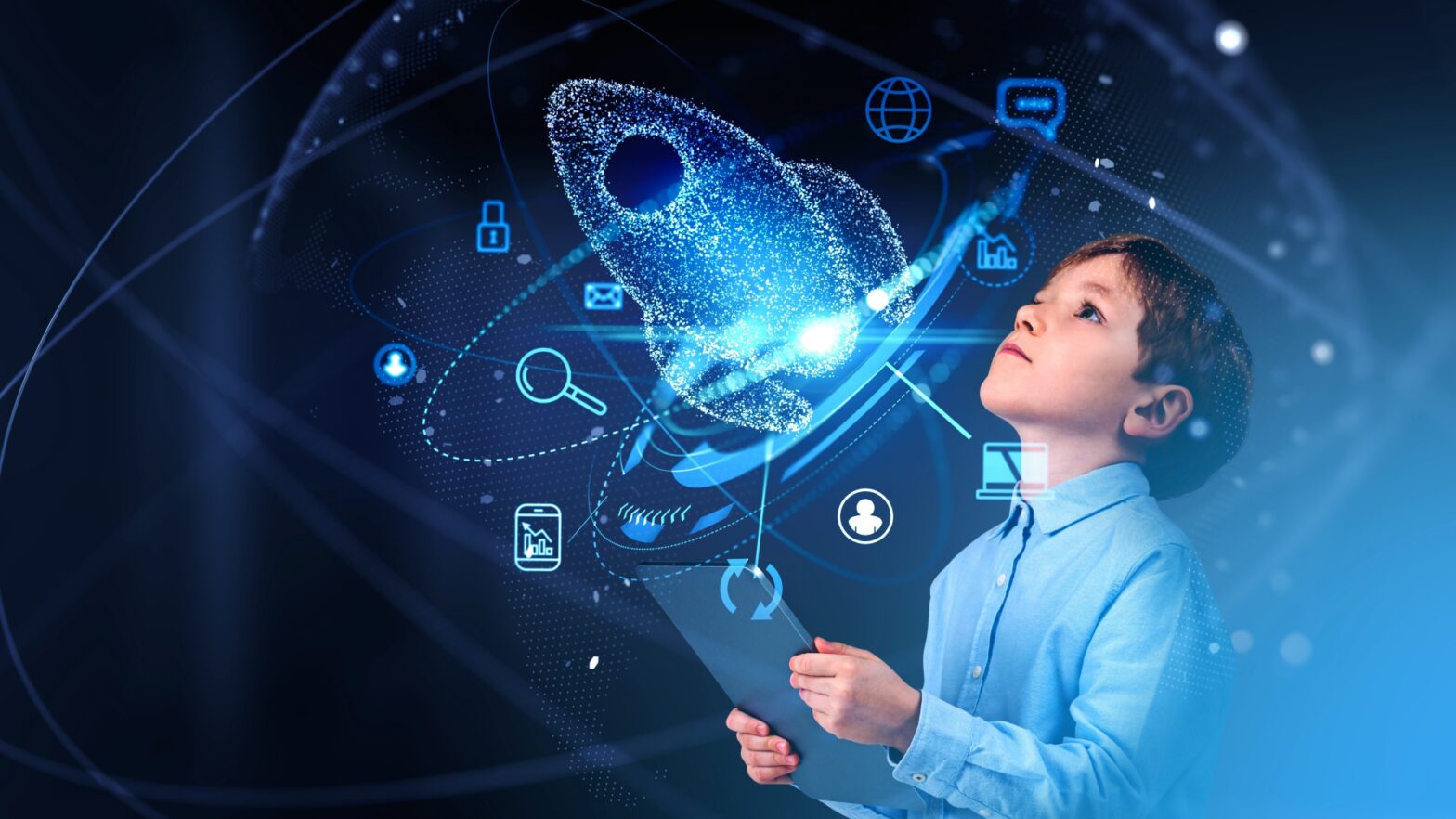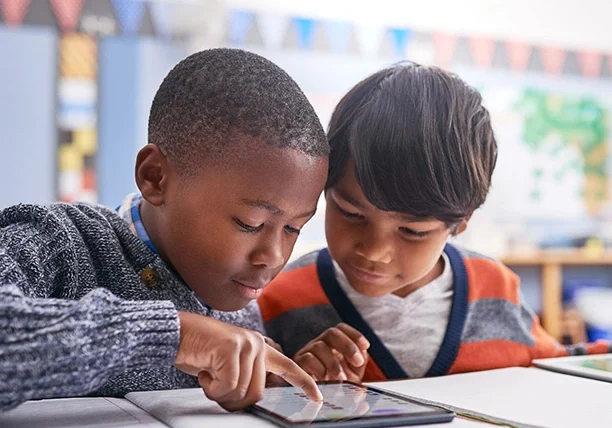The Function of Innovation Education in Shaping Tomorrow's Labor force: Insights for Educators
As the landscape of work continues to evolve under the impact of technological advancements, the duty of technology education comes to be progressively critical in preparing students for future occupations. What methods can teachers use to connect the void in between education and market expectations?

Importance of Technology Education And Learning
In a significantly digital world, the importance of modern technology education can not be overemphasized. As markets develop and incorporate advanced innovations, a well-rounded education and learning in innovation comes to be vital for both specialist and individual advancement. Modern technology education equips individuals with the abilities required to navigate the intricacies of modern-day work environments, promoting versatility in a setting characterized by fast change.
In addition, innovation education and learning advertises important thinking and analytic abilities. Make Money. By engaging with different technological tools and platforms, students boost their ability to evaluate information, draw connections, and create cutting-edge remedies to real-world problems. This academic focus not only prepares pupils for certain professions but likewise grows a state of mind that is crucial for long-lasting knowing
Additionally, innovation education plays an essential duty in linking the digital divide. By supplying equitable access to technical resources and training, academic establishments empower all pupils, regardless of socioeconomic condition, to take part in the digital economic situation. Finally, as we move further into the 21st century, focusing on modern technology education is crucial for preparing a skilled labor force capable of prospering in an increasingly interconnected and technically driven international landscape.
Key Abilities for Future Workforce

On top of that, proficiency in digital literacy is essential; workers need to browse a variety of software program devices and systems properly. Collaboration abilities are likewise paramount, as the majority of contemporary offices emphasize team effort throughout diverse, typically remote, atmospheres. Moreover, creativity and technology will be vital in driving the growth of brand-new services and items in an open market.
Understanding data analytics and cybersecurity concepts is progressively important, reflecting the growing value of data-driven decision-making and safeguarding delicate details. Finally, a foundational expertise of expert system and artificial intelligence will certainly empower future professionals to take advantage of these technologies effectively.
Educators has to as a result prioritize the combination of these skills into their innovation curricula, guaranteeing pupils are fully equipped to meet the demands of a vibrant job market. By cultivating these proficiencies, we prepare learners not just for their initial jobs, but also for long-lasting careers in an ever-evolving technical landscape.
Integrating Innovation in Curriculum
Incorporating modern technology right into the curriculum is important for modern-day education and learning, with 85% of teachers acknowledging its significance in improving student engagement and finding out results. As technology remains to evolve, instructional establishments have to adjust to prepare trainees for a future where electronic literacy is extremely important. This integration includes not just the usage of electronic devices but additionally the unification of ingenious resources that foster crucial reasoning, creative thinking, and cooperation.
A well-structured technology curriculum need to line up with educational criteria while addressing the diverse learning needs of trainees. This can include a mix of online systems, interactive software application, and multimedia sources that satisfy various discovering styles. Teachers should get ample training to properly apply these modern technologies, making certain that they are geared up to help with a technologically enriched understanding atmosphere.
Additionally, incorporating innovation right into the curriculum enables real-world applications, connecting the space between theoretical knowledge and functional abilities. By involving students with immersive and pertinent experiences, educators can grow a labor force that is not only technically skillful but all set and also versatile to meet the challenges of tomorrow's work market. Emphasizing technology in education is not just a trend; it is a need for shaping experienced future professionals.
Cutting-edge Mentor Methods
Embracing cutting-edge teaching techniques is crucial for fostering a effective and engaging learning environment in today's educational landscape. In innovation education, teachers should utilize techniques that not just record trainees' rate of interest yet also outfit them with the skills required for future professions. One efficient strategy is project-based discovering, which encourages students to participate in real-world troubles, promoting critical reasoning and collaboration.
Additionally, integrating gamification can improve motivation and retention, making complex concepts more more accessible and pleasurable. Insurance. Flipped class, where trainees review instructional material in the house and involve in hands-on tasks during class, additionally show useful by making best use of class interaction and application of understanding
In addition, utilizing technology-enhanced knowing tools, such as simulations and online laboratories, permits trainees to experiment and check out in a risk-free setting, cultivating development. Customized learning experiences, tailored to private trainee needs and discovering designs, can better enhance interaction and success.
Ultimately, by integrating diverse and cutting-edge teaching techniques, instructors can create a vibrant learning environment that prepares pupils for the difficulties of tomorrow's workforce, guaranteeing they are not only knowledgeable yet proficient and likewise versatile.
Collaboration With Industry Partners
Teaming up with industry partners is vital for linking the void between education and the labor force. Such partnerships provide trainees with practical insights and experiences that are critical for their specialist growth. By involving with organizations, educators can much better align curriculum web content with the abilities and proficiencies that companies seek. This positioning guarantees that pupils are click to read more not just well-versed in theoretical understanding however additionally possess the hands-on experience required for their future jobs.
Industry collaborations can take lots of kinds, consisting of internships, mentorship programs, and visitor lectures. These initiatives permit trainees to apply their knowing in real-world contexts, promoting a deeper understanding of sector standards and expectations. Moreover, these partnerships can result in the development of specialized programs that deal with particular workforce requirements, boosting the significance of technology education and learning.
Furthermore, market companions can add sources, such as equipment and funding, that enhance academic offerings. By promoting a culture of partnership, educators and industry leaders can interact to cultivate a knowledgeable labor force that is prepared to meet the obstacles of tomorrow. Ultimately, these partnerships are important for producing a smooth change from education to employment, benefiting both students and companies alike.
Final Thought
To conclude, innovation education functions as a foundation for creating an efficient labor force with the ability of browsing the intricacies of a digital economic climate. By stressing critical abilities such as electronic proficiency, creativity, and data analytics, educators can improve student preparedness for varied career opportunities. The assimilation of ingenious training approaches and collaboration with sector partners even more improves the learning experience, making sure that trainees are not only equipped with understanding yet additionally prepared to fulfill the needs of an ever-evolving job market.
As the landscape of work continues to evolve under the impact of technical innovations, the function of innovation education becomes significantly crucial in preparing students for future professions. As industries develop and integrate sophisticated modern technologies, a well-rounded education and learning in technology becomes necessary for both expert and individual growth.Integrating technology into the curriculum is crucial for contemporary education, with 85% of teachers acknowledging its importance in boosting trainee interaction and finding out outcomes. In modern technology education and learning, teachers have to utilize methods that not just catch pupils' passion yet also furnish them with the abilities essential for visit this page future jobs.In conclusion, technology education offers as a cornerstone for establishing a proficient labor force qualified of navigating the complexities of a digital economy.